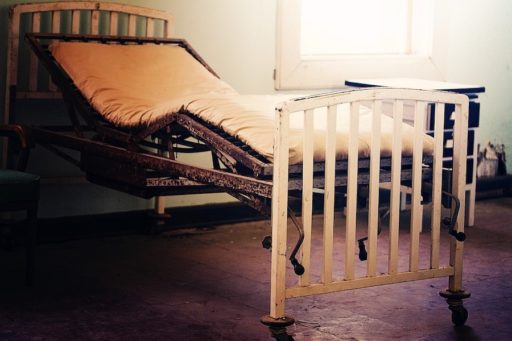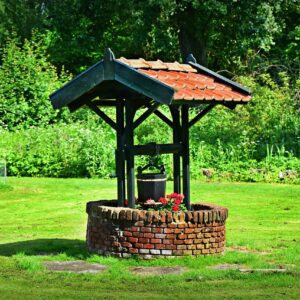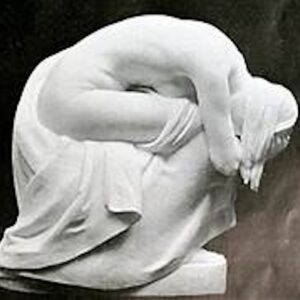I’ve lain or languished on various gurneys in our local hospital’s Emergency Department (ED) in recent days—cardiac and GI disorders brought me there. But I’m not thinking now about the medical issues involved. I’m thinking rather about what enabled me to find joy and solace in what was otherwise a painful, tedious, disorienting, frightening experience.
It all has to do with sounds, beautiful sounds, sounds echoing across centuries. Sounds that I’ve managed to memorize over the years, sounds that have sunk down deeply and others that are new, still bobbing on the surface, still tending to drift off out of reach. But there they all are, just when I need them, just when the yelling and confusion in the ED becomes most alarming, or just when a harassed ED doctor arrives on the fly with a barrage of questions, or a nurse rolls up with a tray of meds or a tech with blood pressure cuff or a needle for a blood draw. Or during those endless moments—or are they years?—when nothing at all seems to be happening, and life has been slowed to stillness, like a run-down record on an ancient wind-up Victrola.
But there he is, Dante, one of the really deep ones, echoing loud and clear from the depths…
Nel mezzo del cammin di nostra vita Mi ritrovai per una selva oscura Que la diritta via era smaritta… In the middle of the road of our life I found myself in a dark wood For the right way was lost…
And on straight through to the end of Canto One. And sections of others.
The ED feels like such a dark wood, of course, but it isn’t just for the obvious parallel that I need those lines. It’s for their beauty of sound, their rhythmic power, their authority, their promise of what will follow. I need their energy, their assurance of a brighter future beyond the present darkness, their willingness to speak of the worst so that the best will receive its proper reward—the one gift I can give, gratitude.
And then there is the opening Sura of the Qur’an, the Fatiha (or “Opening”). No way can I provide here a transcription of its haunting Arabic vocalizations, but it too speaks of paths, found ones and lost ones. In Yusuf Ali’s version…
In the name of Allah. Most Gracious. Most Merciful. Praise be to Allah, the Cherisher and Sustainer of the worlds: Most Gracious, most Merciful. Master of the Day of Judgment. You do we worship, Your aid we seek. Show us the straight way. The way of those on whom you have bestowed your Grace, Those whose portion is not wrath, And who go not astray.
And the psalms, in Hebrew, especially my favorite, Psalm 116. I’ll spare the reader an awkward transcription, but it begins, mellifluously, in the NAB translation:
I love the Lord, for he has heard The cry of my appeal, For he turned his ear to me On the day I called him…
Again, a call from nowhere, from the lost, from out of a dark wood, a call that knows it will be heard because it has been heard before. A call shared and strengthened and shaped by the ear that has already turned towards it.
One of the first ED doctors who visited me gurney-side was an Orthodox Jew, who not only managed to coordinate my care amid the ED tumult but took time to correct my Hebrew pronunciation of Psalm 116—and of 23 as well. Days later, on the final page of my discharge pages, he left me a youtube url for his favorite cantoring of those psalms, because, as he said, he never hears the psalms spoken but only sung—only as music do they exist. Of course he is right.
All those living voices I’ve cited—and others I haven’t— lie pretty well sunk down in memory, but not so far down that even if I seem to have forgotten them, they can’t rise to the surface again with merely modest effort. And the process of recall is itself a fascinating exercise. How does something seem to come out of nothing? Where were those words when I wasn’t thinking of them?
And how do they get in there in the first place? For equally fascinating is the exercise of getting them in memory for the first time, which I was also doing on the gurney, for I’d had a copy of Virgil’s Aeneid brought to me there by a friend. Somehow I’d never engaged with this work. Well, what better time than now?
Arma virumque cano, Troiae qui primus ab oris Italiam, fato profugus, Laviniaque venit, Litera, multo ille terris iactatus et alto, Vi superum… Arms and the man I sing, who first from the shores of Troy Came to Italy, driven by fate, and to the Lavinian shores. Much had he been buffeted on land and at sea By the power of the gods…
Here too a story about having gone astray, losing a path, finding oneself in the dark. But, as with Dante and the Fatiha and the Psalms, the losing of the path is less important than the finding of it again, and how the finding is a cooperative effort between the one lost and the one seeking to find. The real story begins at its lowest point. Perhaps it could have begun at no other point. But if so, everything depends on how determined one is, finally, at this last moment, to find the way out, on how carefully one follows the light then offered, the light offered through a voice: Virgil’s, for Dante, Venus’s, for Aeneas, God’s (Allah’s) for all of us.
How such a seemingly magical rescue can work its power over the centuries even in my local ED, or anywhere else, is a mystery to me, but the mechanics of it are clear. The rescue has to do with the words themselves, and how they are ordered. And I can think of no better guide to how words can do this than a book I came across after finally leaving the ED for home, Susan Wolfson’s A Greeting of the Spirit: Selected Poetry of John Keats, with Commentaries (Harvard University Press, 2022).
This is no sudden stretch of fancy. I could as easily have been reciting Keats on the gurney as the others, for Keats’s odes have gotten me through and beyond previous visits to the same or similar gurney in the same ED. And for the same reason: the life-giving pulse of hope-inspired words arranged in just the way they must be to bring heaven and earth together, in glimpses, in steps, in sequences of advancing strength that transform the loneliness and darkness of the moment into what Keats called a “greeting of the spirit.” The poetry of the gurney is powerful indeed.
After getting his PhD in English literature, George Dardess taught close reading to his own students until his retirement. Since then he has been ordained a Deacon in the Roman Catholic Church and written several books on Muslim-Christian relations. He has also created the graphic novel Foreign Exchange.





